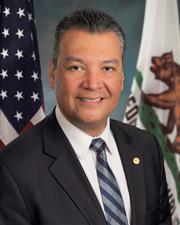Fair College Admissions for Students Act
3/28/2025, 12:56 PMCongress
119
Number
S - 880
Introduced on
2025-03-06
# Amendments
0
Sponsors

Cosponsors



Status of Legislation
Bill Introduced
Introduced to House
House to Vote
Introduced to Senate
Senate to Vote
Purpose and Summary
Read twice and referred to the Committee on Health, Education, Labor, and Pensions.
Bill 119 s 880, also known as the Legacy and Donor Admissions Prohibition Act, aims to make changes to the Higher Education Act of 1965. The bill specifically targets institutions of higher education that receive federal student assistance programs, prohibiting them from giving preferential treatment in the admissions process to legacy students or donors.
Legacy students are those who have family members who previously attended the institution, while donors are individuals or organizations that have made significant financial contributions to the school. The bill seeks to level the playing field in the college admissions process by ensuring that all applicants are considered based on their merits and qualifications, rather than their family connections or financial contributions.
If passed, this legislation would have a significant impact on the admissions policies of many colleges and universities across the country. Supporters of the bill argue that it is necessary to promote fairness and equity in higher education, while critics may argue that it could potentially limit the ability of institutions to raise funds from donors. Overall, Bill 119 s 880 represents an important step towards ensuring that the college admissions process is based on merit and fairness, rather than privilege and wealth. It will be interesting to see how this legislation progresses through Congress and what impact it may have on the higher education system in the United States.
Legacy students are those who have family members who previously attended the institution, while donors are individuals or organizations that have made significant financial contributions to the school. The bill seeks to level the playing field in the college admissions process by ensuring that all applicants are considered based on their merits and qualifications, rather than their family connections or financial contributions.
If passed, this legislation would have a significant impact on the admissions policies of many colleges and universities across the country. Supporters of the bill argue that it is necessary to promote fairness and equity in higher education, while critics may argue that it could potentially limit the ability of institutions to raise funds from donors. Overall, Bill 119 s 880 represents an important step towards ensuring that the college admissions process is based on merit and fairness, rather than privilege and wealth. It will be interesting to see how this legislation progresses through Congress and what impact it may have on the higher education system in the United States.
Alternative Names
Official Title as IntroducedA bill to amend the Higher Education Act of 1965 to prohibit institutions of higher education participating in Federal student assistance programs from giving preferential treatment in the admissions process to legacy students or donors.
Display TitleA bill to amend the Higher Education Act of 1965 to prohibit institutions of higher education participating in Federal student assistance programs from giving preferential treatment in the admissions process to legacy students or donors.
Official Title as IntroducedA bill to amend the Higher Education Act of 1965 to prohibit institutions of higher education participating in Federal student assistance programs from giving preferential treatment in the admissions process to legacy students or donors.
Policy Areas
Education
Comments
Most relevant
Recent Activity
Latest Action3/6/2025
Read twice and referred to the Committee on Health, Education, Labor, and Pensions.